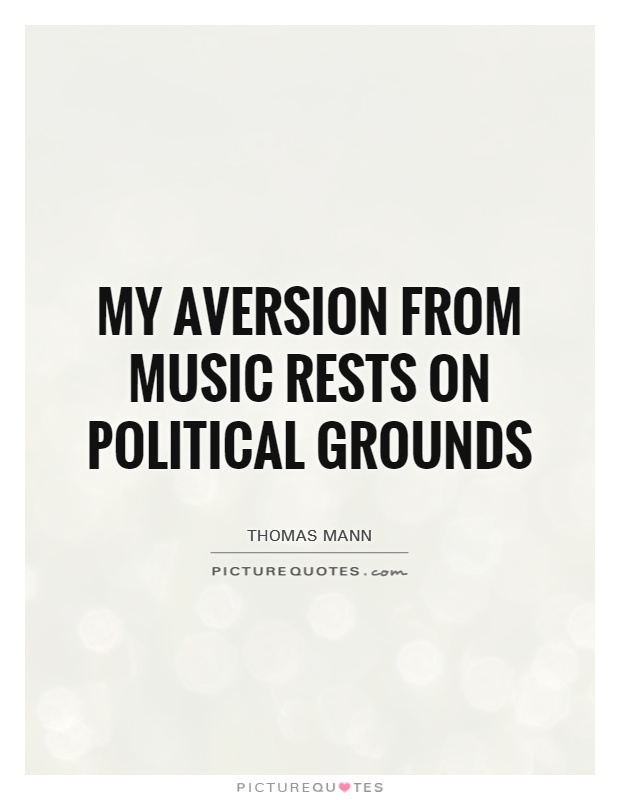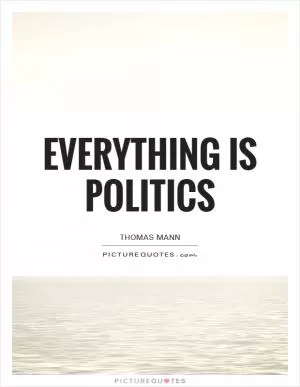My aversion from music rests on political grounds

My aversion from music rests on political grounds
Thomas Mann, the renowned German novelist and essayist, was known for his complex and thought-provoking works that often delved into political and social issues. Mann's aversion from music on political grounds is a fascinating aspect of his personality that sheds light on his beliefs and values.Mann's aversion from music can be traced back to his deep-seated political convictions. Throughout his life, Mann was a vocal critic of authoritarianism and totalitarianism, particularly in the context of Nazi Germany. He believed that music, as a form of art, could be used as a tool for propaganda and manipulation by oppressive regimes. Mann saw how music was often co-opted by the Nazis to promote their ideology and control the masses, and this left a lasting impression on him.
Mann's aversion from music also reflects his broader skepticism towards the power of art to effect social change. While Mann recognized the importance of art in shaping public opinion and challenging established norms, he was wary of the potential for art to be misused for political ends. Mann believed that true art should be autonomous and free from external influences, including political agendas. By distancing himself from music, Mann sought to maintain his artistic integrity and independence.
Mann's aversion from music can also be seen as a form of protest against the commodification of culture. In a society where music is often reduced to a commodity to be bought and sold, Mann's rejection of music on political grounds can be seen as a rejection of the commercialization of art. Mann believed that true art should be a reflection of the human spirit and not a product to be consumed.












 Friendship Quotes
Friendship Quotes Love Quotes
Love Quotes Life Quotes
Life Quotes Funny Quotes
Funny Quotes Motivational Quotes
Motivational Quotes Inspirational Quotes
Inspirational Quotes